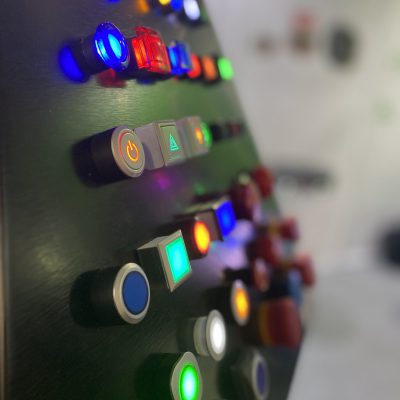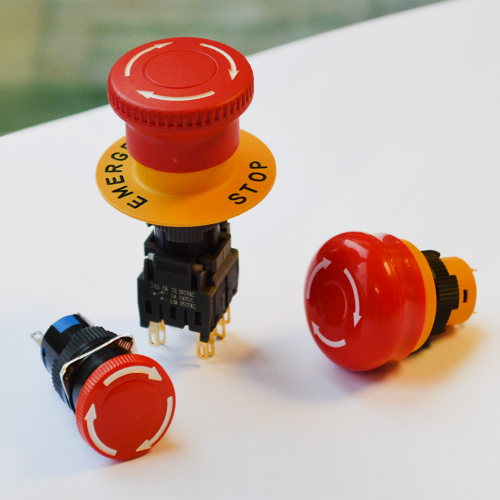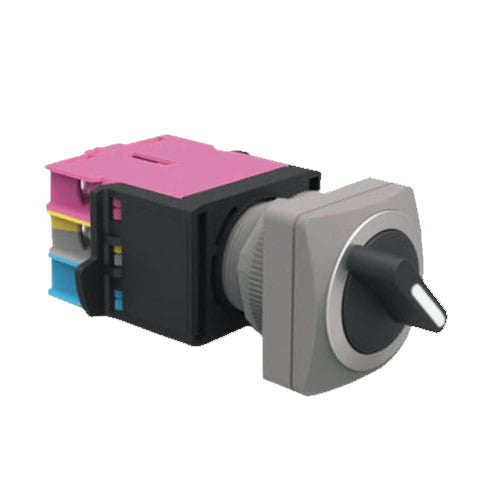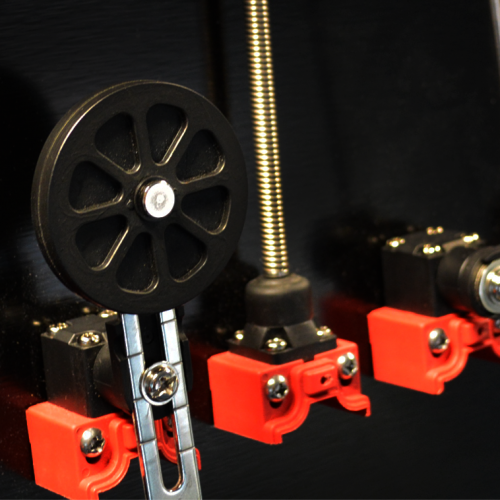Switches 101: Understanding Their Role in Industrial Automation
QUICK LINKS: View all Industrial Controls
Industrial automation has revolutionised the manufacturing industry by streamlining production processes, increasing efficiency, and reducing human error. At the heart of this automation lie numerous components that work in harmony to ensure smooth and reliable operation. One such crucial component is the switch. In this blog post, we will take a deep dive into switches and uncover their role in industrial automation.
Industry Overview
Industrial automation, often referred to as the fourth industrial revolution or Industry 4.0, is the integration of advanced technologies to automate and optimise production processes. This industry has seen remarkable growth, reshaping traditional manufacturing methods and elevating productivity to unprecedented levels. From robotic assembly lines to smart factories, industrial automation is revolutionising diverse sectors such as automotive, food and beverage, pharmaceuticals, and many more.
The Importance of Switches
Switches play a vital role in industrial automation systems, enabling the control and monitoring of electrical circuits. They act as gatekeepers, regulating the flow of electricity and allowing operators to turn circuits on or off as required. Switches are the interface between the machinery and the human operator, providing a means of control over various processes.
Types of Switches in Industrial Automation
- Push Buttons: Often used for manual control, push buttons are one of the most common types of switches in industrial automation. They enable operators to start or stop equipment, trigger alarms, or perform other specific functions with a simple push.
Emergency Stop Switches (E-Stops): One of the most important functions of switches in industrial automation is safety. For example, emergency stop switches are used to quickly shut down machinery in case of an emergency.
- Selector Switches: These switches allow operators to select from multiple control options. By turning the switch to different positions, different outcomes or functionalities can be achieved.
- Limit Switches: Designed to detect the presence or absence of an object, limit switches help ensure the correct positioning of machinery components. They are commonly used to prevent overtravel, protect against jams, or activate certain processes once a specific condition is met.
- Proximity Sensors: While not technically switches, proximity sensors play a similar role in industrial automation. They detect the presence or absence of objects without direct physical contact. These sensors use various technologies like capacitive, inductive, or optical to determine the proximity or distance of an object.
Key Considerations for Switches
When selecting switches for industrial automation applications, a few key factors need to be considered:
- Durability: The switches should be able to withstand harsh industrial environments, including temperature variations, vibrations, corrosive substances, and more.
- Reliability: Switches should provide dependable performance to ensure smooth operation of automated systems, minimising downtime and optimising productivity.
- Safety: Safety is of utmost importance in industrial automation. Switches should be designed to meet all relevant safety standards to protect operators and equipment from potential hazards.
- Compatibility: Switches should be compatible with the automation system’s communication protocols, allowing for seamless integration and easy monitoring and control.
Final Thoughts
Switches are the unsung heroes of industrial automation, enabling operators to control and monitor electrical circuits effectively. They facilitate smooth operation, enhancing productivity and safety in manufacturing processes. Understanding the role and importance of switches empowers us to make informed decisions when selecting the right components for industrial automation projects. So, the next time you see a brightly colored button or a rotating selector switch, remember the pivotal role switches play in the automation industry.
Interested in our products? Speak to us today!
How to place an order?
We operate Monday – Thursday (8 am – 5 pm) and Fridays (8 am – 4.30 pm)
Call us on +44 (0) 1234 213600 to speak to our Sales Engineers or e-mail us
on [email protected] alternatively, leave us a message using our online contact form.
View our full product range here | Download our recent product catalogue
Switch on.
Sign up to our mailing list for the latest news, product notification and so much more!
Just one click away…





